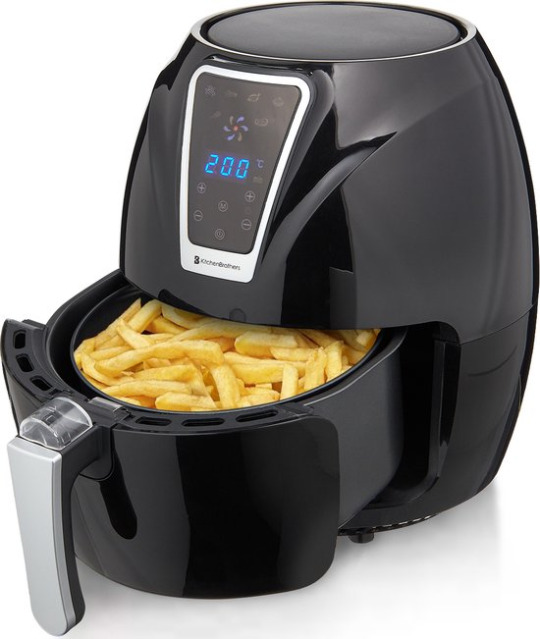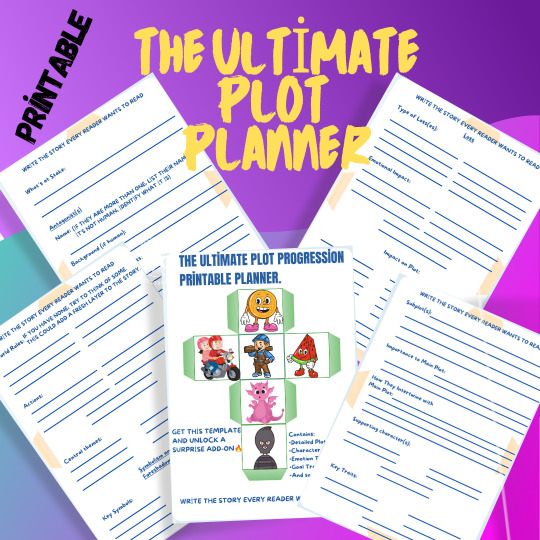#tricks and tools
Explore tagged Tumblr posts
Text
Useful tools to cook with disability
Chair or stool
Especially if you have a disability that prevent you to stand for too long!! Do the cooking while being sit. You are allowed to do it. You don’t have to keep standing. I personally use an old desk chair with rolls so I can stay sat while going to grasp ingredients.

Microwave
To re-heat your meal. To simplify some cooking. For some minute preparations you can find in store.

Kettle
Easy for some instant option such as noodles, soup, etc. Don’t forget that eating a bit is better than not eating at all.
PS: If you struggle with weight, be careful to not overfill the kettle.

Air Fryer
It became one of my favourite tool. It works like a little oven but unlike the oven and the classic fryer, it doesn’t need to be pre-heat. I personally barely use my pans and pots anymore since I got one; never forget for hours that I turned on the oven to pre-heat and with a timer, it cannot overcook.

Crockpot
I love the fact you can leave time between some elements of the cooking, or simply dump and wait. It leaves some time to rest after the efforts and also easy to make big quantity to store away. Mine is also multifunction so I can easily make a bit more complex recipe by changing the function one after the other. In the end, you’d have used only one pot to clean. I also love to have everything in one that I can put in an obvious place because I have bought so many cooking tool only to never use them because I forgot I had them or didn’t have the energy to retrieve them.

Freezer
Be it because you are buying a big jar of tomato meatballs; get take-out, realize you have leftovers or simply are in a good day to cook yourself. Portion it, have it ready to be thrown in the microwave or, if you can, in a saucepan. While I do have some whole meals in freezer, I also do enjoy to have them separated. Here some applesauce, there some mashed potatoes and then some fish sticks and you can easily make a tasty meal without much efforts.

15 notes
·
View notes
Text
10 Non-Lethal Injuries to Add Pain to Your Writing
New Part: 10 Lethal Injury Ideas
If you need a simple way to make your characters feel pain, here are some ideas:
1. Sprained Ankle
A common injury that can severely limit mobility. This is useful because your characters will have to experience a mild struggle and adapt their plans to their new lack of mobiliy. Perfect to add tension to a chase scene.
2. Rib Contusion
A painful bruise on the ribs can make breathing difficult, helping you sneak in those ragged wheezes during a fight scene. Could also be used for something sport-related! It's impactful enough to leave a lingering pain but not enough to hinder their overall movement.
3. Concussions
This common brain injury can lead to confusion, dizziness, and mood swings, affecting a character’s judgment heavily. It can also cause mild amnesia.
I enjoy using concussions when you need another character to subtly take over the fight/scene, it's an easy way to switch POVs. You could also use it if you need a 'cute' recovery moment with A and B.
4. Fractured Finger
A broken finger can complicate tasks that require fine motor skills. This would be perfect for characters like artists, writers, etc. Or, a fighter who brushes it off as nothing till they try to throw a punch and are hit with pain.
5. Road Rash
Road rash is an abrasion caused by friction. Aka scraping skin. The raw, painful sting resulting from a fall can be a quick but effective way to add pain to your writing. Tip: it's great if you need a mild injury for a child.
6. Shoulder Dislocation
This injury can be excruciating and often leads to an inability to use one arm, forcing characters to confront their limitations while adding urgency to their situation. Good for torture scenes.
7. Deep Laceration
A deep laceration is a cut that requires stitches. As someone who got stitches as a kid, they really aren't that bad! A 2-3 inch wound (in length) provides just enough pain and blood to add that dramatic flair to your writing while not severely deterring your character.
This is also a great wound to look back on since it often scars. Note: the deeper and wider the cut the worse your character's condition. Don't give them a 5 inch deep gash and call that mild.
8. Burns
Whether from fire, chemicals, or hot surfaces, burns can cause intense suffering and lingering trauma. Like the previous injury, the lasting physical and emotional trauma of a burn is a great wound for characters to look back on.
If you want to explore writing burns, read here.
9. Pulled Muscle
This can create ongoing pain and restrict movement, offering a window to force your character to lean on another. Note: I personally use muscle related injuries when I want to focus more on the pain and sprains to focus on a lack of mobility.
10. Tendonitis
Inflammation of a tendon can cause chronic pain and limit a character's ability to perform tasks they usually take for granted. When exploring tendonitis make sure you research well as this can easily turn into a more severe injury.
This is a quick, brief list of ideas to provide writers inspiration. Since it is a shorter blog, I have not covered the injuries in detail. This is inspiration, not a thorough guide. Happy writing! :)
Looking For More Writing Tips And Tricks?
Check out the rest of Quillology with Haya; a blog dedicated to writing and publishing tips for authors!
Instagram Tiktok
#hayatheauthor#haya's book blog#haya blogs#writing community#quillology with haya#writing tools#writer things#writing advice#writer community#writing techniques#writing prompt#writing stuff#creative writing#ya writing advice#writing tips and tricks#writer tools#writers of tumblr#writer blog#writers block#quillology with haya sameer#writers on tumblr#writerscommunity#writer stuff#author help#author advice#author#writing inspiration#writeblr#novel writing#on writing
62K notes
·
View notes
Text
Other Words for "Look" + With meanings | List for writers
Many people create lists of synonyms for the word 'said,' but what about the word 'look'? Here are some synonyms that I enjoy using in my writing, along with their meanings for your reference. While all these words relate to 'look,' they each carry distinct meanings and nuances, so I thought it would be helpful to provide meanings for each one.
Gaze - To look steadily and intently, especially in admiration or thought.
Glance - A brief or hurried look.
Peek - A quick and typically secretive look.
Peer - To look with difficulty or concentration.
Scan - To look over quickly but thoroughly.
Observe - To watch carefully and attentively.
Inspect - To look at closely in order to assess condition or quality.
Stare - To look fixedly or vacantly at someone or something.
Glimpse - To see or perceive briefly or partially.
Eye - To look or stare at intently.
Peruse - To read or examine something with great care.
Scrutinize - To examine or inspect closely and thoroughly.
Behold - To see or observe a thing or person, especially a remarkable one.
Witness - To see something happen, typically a significant event.
Spot - To see, notice, or recognize someone or something.
Contemplate - To look thoughtfully for a long time at.
Sight - To suddenly or unexpectedly see something or someone.
Ogle - To stare at in a lecherous manner.
Leer - To look or gaze in an unpleasant, malicious way.
Gawk - To stare openly and stupidly.
Gape - To stare with one's mouth open wide, in amazement.
Squint - To look with eyes partially closed.
Regard - To consider or think of in a specified way.
Admire - To regard with pleasure, wonder, and approval.
Skim - To look through quickly to gain superficial knowledge.
Reconnoiter - To make a military observation of a region.
Flick - To look or move the eyes quickly.
Rake - To look through something rapidly and unsystematically.
Glare - To look angrily or fiercely.
Peep - To look quickly and secretly through an opening.
Focus - To concentrate one's visual effort on.
Discover - To find or realize something not clear before.
Spot-check - To examine something briefly or at random.
Devour - To look over with eager enthusiasm.
Examine - To inspect in detail to determine condition.
Feast one's eyes - To look at something with great enjoyment.
Catch sight of - To suddenly or unexpectedly see.
Clap eyes on - To suddenly see someone or something.
Set eyes on - To look at, especially for the first time.
Take a dekko - Colloquial for taking a look.
Leer at - To look or gaze in a suggestive manner.
Rubberneck - To stare at something in a foolish way.
Make out - To manage to see or read with difficulty.
Lay eyes on - To see or look at.
Pore over - To look at or read something intently.
Ogle at - To look at in a lecherous or predatory way.
Pry - To look or inquire into something in a determined manner.
Dart - To look quickly or furtively.
Drink in - To look at with great enjoyment or fascination.
Bask in - To look at or enjoy something for a period of time.
#on writing#creative writing#writing#writing tips#writers block#how to write#thewriteadviceforwriters#writeblr#writers and poets#writers on tumblr#novel writing#fiction writing#romance writing#writing advice#writing blog#writing characters#writing community#writing help#writing ideas#writing inspiration#writing guide#writing prompts#writing a book#writing resources#writing reference#writing tips and tricks#writers#writing tools#writing life#writing software
19K notes
·
View notes
Text
Ideas to Show Secret Pining
"Why don't you join me?"
"I'll give you a ride, don't worry."
*does something they don't like* "What? I like it."
*immense staring at every chance they get*
*thinking of their crush while listening to songs*
"You said you liked it so I brought it for you."
*finds ways to spend more time with them*
*friendly bullying intensifies*
"I'm looking forward to seeing you there."
"Are you gonna be there?"
"How about we sneak off, just you and me?"
"Why don't I cook for them? What's their favourite dish again?"
*aggressive google searches about how to propose to your crush*
"I'll join those dance lessons, maybe then she'll notice me."
*hopeless around them*
*failed flirting attempts*
*increased compliments*
"My problem is that I like them a little too much for my sanity."
*gets jealous* "So, are you seeing them or something?"
"Are you okay?" // "Completely okay!" (definitely not okay)
*tries to sabotage their crush's date*
*gets into trouble so they can be scolded by their crush*
"I want you to come with me, please?"
-ashlee
#writers on tumblr#writerscommunity#writing#books#writer#write#writingtips#creative writing#tips and tricks#fanfic writing#writings#writing ideas#writing prompts#on writing#writeblr#writing life#writing tips#writers#prompts#writing inspiration#writing prompt#story prompts#story ideas#writing advice#writing community#writing tools#writingideas#dialogues#drabbles#dialogue ideas
11K notes
·
View notes
Text
Questions to Ask Yourself About Your Character
What is their relationship with their parents?
What is their favorite meal?
How do they identify?
What's their style?
Are they proud of themselves?
Are they patient or impatient?
Do they have siblings, and what's their relationship with them?
What are their standards?
Have they ever been in love?
When was the last time they felt loved?
Have they gotten their heart broken?
Do they know who they are?
What are their preferences?
What do they want?
What are their goals?
What would they do if they failed?
What would they save in a fire?
What's one childhood item they still love?
#writing#writing tips#tips#writing inspiration#writing prompt#writing community#writing advice#creative writing#writeblr#writerscommunity#writers on tumblr#writers#how to write#writing a book#writing tips and tricks#writing resources#writing tools
2K notes
·
View notes
Text
20 Alternative Losses Your Protagonist Can Face That Don't Involve the Death of a Person.
In one of my recent posts, I talked about losses as a core principle in driving a plot forward.

It's recommended in almost all guides. But here's the thing: someone doesn't have to actually die to create that emotional rollercoaster.
Here are 20 different losses your protagonist can face without losing someone to the cold hands of death:
1. Loss of a dream job opportunity
2. End of a long-term relationship or marriage
3. Betrayal by a close friend or family member
4. Financial ruin or bankruptcy
5. Loss of a beloved pet (The pet could go missing.)
6. Rejection from a prestigious program or institution
7. Injury or illness leading to the loss of physical abilities
8. Destruction of a childhood home
9. Loss of custody of a child
10. Failure to achieve a lifelong dream or goal
11. Being falsely accused of a crime
12. Natural disaster destroying personal belongings and home
13. Loss of a valuable family heirloom
14. Experiencing discrimination or injustice
15. Being forced to move away from a beloved community
16. Losing a significant competition or contest
17. Loss of memory or cognitive abilities
18. Falling out with a mentor or role model
19. Closure of a cherished local business
20. Loss of one's reputation due to scandal or rumor
Thank you for all of your support. If you love my blog, consider gifting me a rose. Val's here, and I hope your characters are ready to paint the town red.
Check out this printable template that helps you structure the nuanced parts of your plot you normally skip out on.

You also receive a free add-on that enhances your plot. It saves you time and helps you maintain quality.
#writeblr#writers on tumblr#writing#writers and poets#writerscommunity#writer#writing community#ao3 writer#wattpad#a03 writer#writers#writing prompts#writing guide#writing advice#writing reference#writing resources#writing habits#writing help#writing blog#writing techniques#writing template#writing tips and tricks#writing tool#writing tips#writing plot#plot problems#aspiring writer#writer and poets#writer blog#writer help
843 notes
·
View notes
Text

@doodledrawsthings when when you wh when y- you whennn
#nine sols#i cant believe i drew this without realizing mak did too this is so fucking funny#nine sols yi#nine sols shuanshuan#sorry people who are following me for pressure#make got me into nine sols#this is the law of equal exchange#they draw pressure i play nine sols#and they also play ghost trick but thats a surprise tool we'll use later
572 notes
·
View notes
Text
★ 137 // “Carside Companion”
#jjba#jojo's bizarre adventure#steel ball run#sbr#johnny joestar#offerings#tools used:#tombow markers#some random black ink pen I had in my car#// Did anyone else used to imagine characters running alongside them in the car as a kid?#For me it was always Sonic characters lol. I'd imagine them grinding guardrails and doing tricks.#I wanted to capture that feeling again and since I had such a long car ride I figure I may as well try#I drew part of this in the car and part of it in a Taco Bell lol. I only had limited colors on me.#The scenery in the background is some part of North Carolina#This is the first post I'm making in my new house. I just made it here. <3#The drive went well!#Rare instance where the Bluesky post is arguably better. There's a longer video up on there!#Tumblr refused to upload anything above 30 seconds
235 notes
·
View notes
Text

dream was NOT trick or treating he just wore a hat to be festive (totally). techno absolutely was however and went as dream's cat familiar, and he was very successful. he will magnanimously deign to give some of his candy to dream since he DID make techno's costume better by standing next to him all night but he will make fun of him while doing so
#belated extra halloween drawing bc everyone was so nice abt the last one hehe.. and it was fun to draw too#and yknow. trackpads aren't so bad if you use line tools. its so fine it just takes longer#so this is like post trick or treating dream pretended to just be following techno around to like make fun of him or hang out or whatever#but he DID want candy mark my words. techno just casually got extra because he's 'bigger dream cmon I need more' but its actually for him#anyway those were my thoughts roughly about this#technoblade#dreamwastaken#c!dream#lynx draws
298 notes
·
View notes
Text
Steps to Write 1K Words a Day (with a tight schedule)

follow for more tips 💋 || request writing tips 💌
1. Establish the Foundation
Know Your Why: Clarify your reason for writing daily by finishing a novel, building discipline, therapeutic expression, etc. Purpose keeps you going when time is tight.
Pick a Project & Stick With It: Avoid hopping between too many ideas. Commit to one main project to prevent decision fatigue.
Set a Realistic Timeframe: Determine how much daily time you actually have. Even 30 minutes can be enough with focus.
2. Shape the Writing Routine
Set a Daily Writing Slot: Choose the same 20-60-minute window each day, e.g., early morning, lunch break, and right before bed. Consistency beats chaos.
Break It into Sprints: Divide writing time into 2-3 focused sprints (10–20 minutes each) with mini-goals (e.g., 300 words per sprint).
Use Micro-Moments Wisely: Jot down scenes, lines, or dialogue in short bursts during downtime, e.g., commutes and between classes.
3. Build a Writing Habit
Create a Ritual: Start with a cue (tea, playlist, app launch), write, and end with a reward. Conditioning helps it stick.
Track Your Progress: Use a word count tracker, habit app, or physical calendar to visualize your momentum.
Aim for “Done,” Not “Perfect”: Don’t revise mid-draft. Keep the focus on finishing today’s 1,000 words, not editing yesterday’s.
4. Define Your Writing Environment
Eliminate Distractions: Silence notifications, close tabs, and let others know you’re “off the grid” during your writing window.
Use Tools That Work for You: Whether it's Google Docs, Scrivener, Word, or a distraction-free app (like FocusWriter), pick what helps you stay in flow.
Keep Materials Nearby: Outlines, scene notes, character sheets. Have them within reach to avoid losing time to memory gaps.
5. Develop Content Efficiently
Outline Briefly Before Writing: Know the scene’s goal, characters involved, and 1–2 key beats. This cuts down time spent thinking mid-writing.
Use Prompts or Templates: If stuck, use writing prompts or scene formulas (e.g., conflict ↣ tension ↣ resolution) to keep moving forward.
Lower the Stakes for First Drafts: Treat your draft as clay, not marble. Write fast, revise later.
6. Reward Yourself Consistently
Use Immediate Micro-Rewards: After each sprint, give yourself a small treat: a stretch, snack, meme scroll, or a favorite song.
Build End-of-Day Rituals: After hitting 1K, reward yourself with a guilt-free indulgence:
- A hot drink
- 30 minutes of gaming
- A mini-episode of your comfort show
- Reading time
Track for Bigger Rewards: Hit a streak (5 days? 2 weeks?) and treat yourself to something bigger: new notebook, movie night, favorite meal.
Celebrate Wins, Big or Small: Even if you only wrote 300 words, that’s progress. Celebrate effort, not just perfection.
7. Develop a Sustainable Arc
Adjust as Needed: If 1,000 words becomes overwhelming, drop to 500 and scale up again. It's better to be consistent than burned out.
Build in Break Days: Choose 1-2 buffer days per week for rest or catch-up. Remember, your brain needs recharge time.
Reflect Monthly: Look back on what worked, what didn’t, and what to change. Writing daily is a living habit, not a static rule.
Tools That Can Help
Timers: Pomodoro apps (e.g., Focus Keeper, Forest)
Trackers: Pacemaker Planner, WriteTrack
Writing Tools: 4theWords (gamified), Google Docs offline, Scrivener
Voice-to-Text Options: Google Voice Typing, Otter.ai
Examples of People with Tight Schedules Who Write Daily
Octavia Butler: Wrote early each morning before work. Do what she said, “Persist.”
Brandon Sanderson: Wrote in sprints between teaching and family time.
Toni Morrison: Wrote after her children went to sleep, hence treating every moment as sacred.
You (Eventually): With the right systems, even the busiest writer can find their rhythm.

Follow || Like || Comment || Repost || My Novel ⇚⇚⇚


thank you, i am farkle :)
#౨ৎ a.a.walker's tips ౨ৎ#writers on tumblr#writer#creative writing#booklr#artists on tumblr#aspiring author#on writing#academia#nostalgia#college#writing tips#writing tips and tricks#writing help#writing heals#writing stuff#writing resources#writing tools#writing advice#fiction writing#writblr#writer tumblr#storytelling#narrative#writers and poets#poets and writers#writers and readers#writing community#writeblr#writers and writing
89 notes
·
View notes
Text
a small diy recommendation from annoying anarcho!
hey! are you tired of mixing acrylic paint with random shit to paint your patches? interested in a paint thats a little bit too opaque and probably needs to be watered down? (thus giving you a bit more to work with!)
then heres an idea!: wall paint samples.
ive been using $5 wall paint sample tubs since i started making patches, and holy SHIT it works super well! since the paint is so opaque you dont tend to need very much, and because its meant for walls its overly strong and water resistant. the small tubs also give you plenty considering how little you tend to need!
"annoying anarcho! what about the fumes!" idk but it works great. wear a mask or something while you paint if you're really worried.
only con is that you need to be confident in your abilities! if you mispaint you need to either go over it in a different colour or wipe it away with water asap, otherwise shits great! if you want colours that arent different varieties of white then mix it with acrylic, hypocritical of me to suggest i know, but it works a charm.
or, if you dont like paint then household bleach can be pretty decent! its permanent, has a cool looking colour +effect and is generally in most households, just make sure your fabric works with it and do some test strips!
(wear protection when handling chemicals!!)
#diy#punks#punk#anarcho punk#diy punk#upcycle#upcycling#diy projects#diy craft#tips and tricks#diy tips#diy tools#antifascist#anti capitalism#patches#patch pants#battle jacket
206 notes
·
View notes
Text


can i interest anyone in a baby star god orikan
#the infinite and the divine#orikan the diviner#my template sketch spray paint a bunch of dots glow effect blend tool trick
114 notes
·
View notes
Text
100 Dialogue Tags You Can Use Instead of “Said”
For the writers struggling to rid themselves of the classic ‘said’. Some are repeated in different categories since they fit multiple ones (but those are counted once so it adds up to 100 new words).
1. Neutral Tags
Straightforward and unobtrusive dialogue tags:
Added, Replied, Stated, Remarked, Responded, Observed, Acknowledged, Commented, Noted, Voiced, Expressed, Shared, Answered, Mentioned, Declared.
2. Questioning Tags
Curious, interrogative dialogue tags:
Asked, Queried, Wondered, Probed, Inquired, Requested, Pondered, Demanded, Challenged, Interjected, Investigated, Countered, Snapped, Pleaded, Insisted.
3. Emotive Tags
Emotional dialogue tags:
Exclaimed, Shouted, Sobbed, Whispered, Cried, Hissed, Gasped, Laughed, Screamed, Stammered, Wailed, Murmured, Snarled, Choked, Barked.
4. Descriptive Tags
Insightful, tonal dialogue tags:
Muttered, Mumbled, Yelled, Uttered, Roared, Bellowed, Drawled, Spoke, Shrieked, Boomed, Snapped, Groaned, Rasped, Purred, Croaked.
5. Action-Oriented Tags
Movement-based dialogue tags:
Announced, Admitted, Interrupted, Joked, Suggested, Offered, Explained, Repeated, Advised, Warned, Agreed, Confirmed, Ordered, Reassured, Stated.
6. Conflict Tags
Argumentative, defiant dialogue tags:
Argued, Snapped, Retorted, Rebuked, Disputed, Objected, Contested, Barked, Protested, Countered, Growled, Scoffed, Sneered, Challenged, Huffed.
7. Agreement Tags
Understanding, compliant dialogue tags:
Agreed, Assented, Nodded, Confirmed, Replied, Conceded, Acknowledged, Accepted, Affirmed, Yielded, Supported, Echoed, Consented, Promised, Concurred.
8. Disagreement Tags
Resistant, defiant dialogue tags:
Denied, Disagreed, Refused, Argued, Contradicted, Insisted, Protested, Objected, Rejected, Declined, Countered, Challenged, Snubbed, Dismissed, Rebuked.
9. Confused Tags
Hesitant, uncertain dialogue tags:
Stammered, Hesitated, Fumbled, Babbled, Mumbled, Faltered, Stumbled, Wondered, Pondered, Stuttered, Blurted, Doubted, Confessed, Vacillated.
10. Surprise Tags
Shock-inducing dialogue tags:
Gasped, Stunned, Exclaimed, Blurted, Wondered, Staggered, Marvelled, Breathed, Recoiled, Jumped, Yelped, Shrieked, Stammered.
Note: everyone is entitled to their own opinion. No I am NOT telling people to abandon said and use these. Yes I understand that said is often good enough, but sometimes you WANT to draw attention to how the character is speaking. If you think adding an action/movement to your dialogue is 'good enough' hate to break it to you but that ruins immersion much more than a casual 'mumbled'. And for the last time: this is just a resource list, CALM DOWN. Hope that covers all the annoyingly redundant replies :)
Looking For More Writing Tips And Tricks?
Check out the rest of Quillology with Haya; a blog dedicated to writing and publishing tips for authors!
Instagram Tiktok
#hayatheauthor#haya's book blog#haya blogs#writing community#quillology with haya#writing tools#writer things#writing advice#writer community#writing techniques#writing prompt#writing stuff#creative writing#ya writing advice#writing tips and tricks#writer tools#writers of tumblr#writer blog#writers block#quillology with haya sameer#writers on tumblr#writerscommunity#writer stuff#author help#author advice#author#writing inspiration#writeblr#novel writing#on writing
32K notes
·
View notes
Text
How to Start Writing Again When the Spark Fades
Sometimes the well of creativity runs dry, leaving you staring at a blank page with nothing but frustration. But trust that the art of writing is as much about the journey as it is about the destination. Here are some ideas to help you reconnect with your writing practice when you feel like your passion has dimmed.
Redefine Your Environment Consider taking a deliberate step outside your usual writing space. The environment in which you work can drastically affect your mindset and creative flow. Even if it’s setting up in a different corner of your home, finding refuge in a local café, or enjoying the subtle distractions of a park bench, a change in scenery often signals a mental reset. This isn’t about permanent relocation, just a simple shift can break the monotony and stir new ideas that have been hiding in plain sight.
Embrace Imperfection The pressure to produce perfect prose can be paralyzing. Give yourself permission to create something imperfect yet honest. Think of every sentence you write as a rough sketch, a necessary experiment in understanding your own voice. When you allow yourself the space to write without the weight of perfection, you invite experimentation and genuine self-expression. That freedom lies at the heart of rediscovering why you fell in love with writing in the first place.
Set Incremental Goals for Continuous Momentum When the idea of diving into a full chapter feels overwhelming, scale back to manageable, bite-sized projects that feel achievable. Instead of demanding a polished page, challenge yourself to write a paragraph or even a single sentence each day. These micro-goals build a foundation of small successes, gradually restoring confidence and momentum. Over time, these consistent efforts enrich your creative reservoir, proving that every little step is indeed a victory.
Engage Deeply in the Process of Freewriting Allow yourself to spill thoughts onto the page without judgment or expectation. Freewriting is an exercise in vulnerability and self-exploration, offering you a space to unburden tangled ideas and unexpected insights. In these unfiltered moments, you might stumble upon a germ of an idea or a rediscovered passion that rekindles your creative fire. Embracing this unstructured approach can transform an intimidating blank page into an open canvas of potential you haven't tapped back into.
Rekindle Old Inspirations There is power in revisiting the work and moments that first ignited your creative spirit. Even if it’s rereading an old journal entry, rediscovering a favorite piece of literature, or reflecting on the stories that once moved you, reconnecting with your past inspirations can shed new light on your present creative journey. This reflective practice not only reminds you of your original passion but may also reveal new directions for your current writing endeavors.
Create a Consistent, Loving Writing Routine Creating a structured yet gentle routine can help reestablish your relationship with writing. Treat your writing time as a vital appointment, a moment carved out just for you. Even if inspiration seems scarce, the simple act of sitting down, opening your notebook, and letting words flow without self-censorship can be incredibly healing. Over time, this practice transforms writing from an obligation into a ritual of self-discovery and mindfulness.
Connect with a Community That Understands Engaging with fellow writers can remind you that you’re not alone in this struggle. The shared experience of creative highs and lows can be profoundly comforting. Join writing groups, participate in online forums, or simply reach out to someone whose work inspires you. These interactions foster a sense of belonging and accountability, encouraging you to keep writing even when the path isn’t clear. In the gentle exchange of ideas and feedback, there is often a spark that reignites your dedication.
Every writer’s journey is unique, filled with ebbs and flows. If you’re feeling disconnected, know that these moments are integral to growth. Embrace each phase as an opportunity to rediscover writing on its own terms, and allow your passion to guide you back into the words you love. If you need any advice from me, never be afraid to send me an ask.
Until next time, Rin T.
#on writing#creative writing#writing#writing tips#writers block#how to write#thewriteadviceforwriters#writeblr#writers and poets#writers on tumblr#novel writing#fiction writing#romance writing#writing advice#writing blog#writing characters#writing community#writing help#writing ideas#writing inspiration#writing guide#writing prompts#writing a book#writing resources#writing reference#writing tips and tricks#writers#writing tools#writing life#writing software
4K notes
·
View notes
Text

🍁🎃 SAM's true Origins🎃🍁
#ora ora get pregnant#Sjbsskbdksnskd no pude evitarlo pero me tomo un rato. Pensar a Kien poner ahshshsbdb#ANYWAYS ESTE ES MI HC de UNO (1) De los wawas de mi ship teeheee akdbskndnf#sam trick r treat#trick r treat#Tnbc#Nbc#the nightmare before christmas#oogie boogie#jack skellington#Jack x Oogie#Bonesack#Otp art#Otp#my art#doodle#fan art#Myart#paint tool sai
327 notes
·
View notes